| Availability: | |
|---|---|
| Quantity: | |
| Product Name | cube neodymium magnets |
| Material | Neodymium Magnet/Permanet Magnet |
| Size | Various kinds or according to customers' request |
| Shape | Disc, Block, Ring, Countersunk, Segment, Trapezoid, Irregular shapes are available, Or Customized Shapes |
| Grade | N35-N52, N35M-N50M, N33H-N48H, N30SH-N35SH and so on |
| Tolerance in size | +/-0.05 mm |
| Direction of magnetisation | Through the thickness or through the diameter |
| Applications | 1. Electronic areas: speakers, headphones, acoustics, sensors and so on. 2. Motor areas: generators, servo motors, micro-motors, vibration motors, elevator motor and so on. 3. Clean Tech Energy: Water flow enhancement, wind turbines. 4. Health care: MRI, medical treatment equipment. 5. Other industries: electric doors and windows, electric vehicle, electric bicycles, computer, phone, boxes, magnetic tools, notebook and so on |
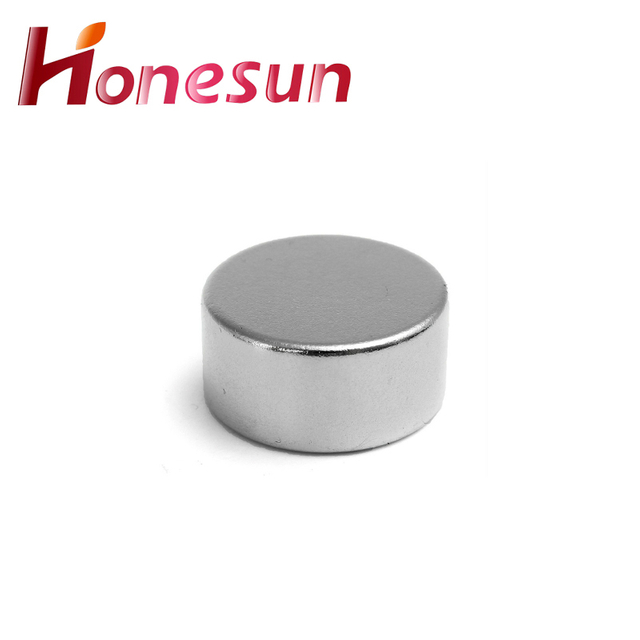
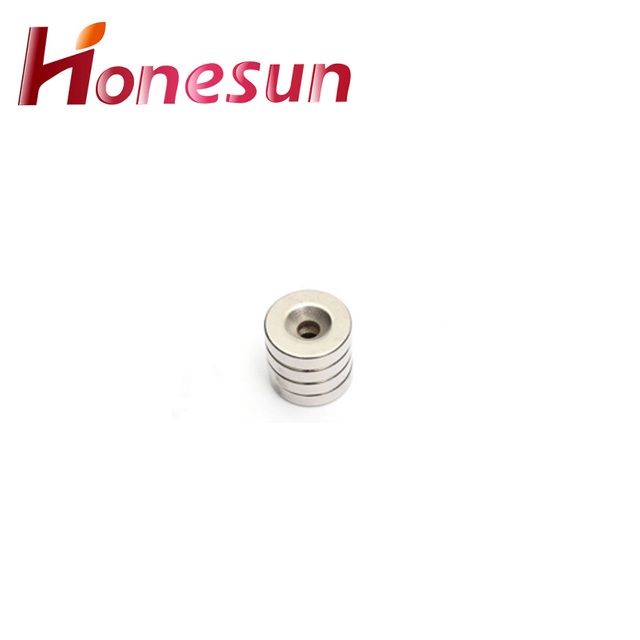
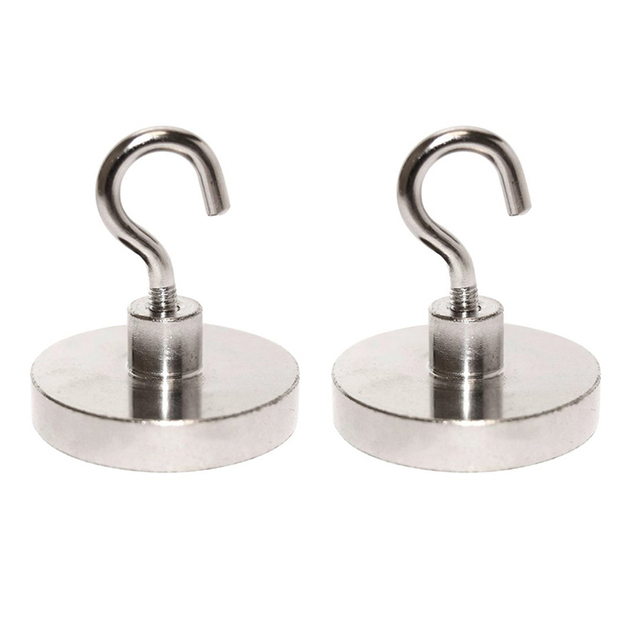
1.Are cube neodymium magnets affected by extreme temperatures?
Yes, neodymium magnets can be affected by extreme temperatures. They can become brittle and crack if exposed to temperatures above 175°C (347°F). They can also lose their magnetism if exposed to temperatures below -45°C (-49°F).
2.About cube neodymium magnets delivery date
Neodymium magnets are usually shipped within 1-2 business days of ordering. Depending on the size and quantity of the magnets, delivery times may vary.
3.How do cube neodymium magnets compare to Samarium Cobalt Magnets?
cube neodymium magnets is not a product only, but also can help you comes to money-making. Neodymium magnets are the strongest type of permanent magnet available, and they are much stronger than samarium cobalt magnets. Neodymium magnets are also much more affordable than samarium cobalt magnets, making them the more popular choice for many applications. Neodymium magnets are also more resistant to corrosion and temperature changes than samarium cobalt magnets.
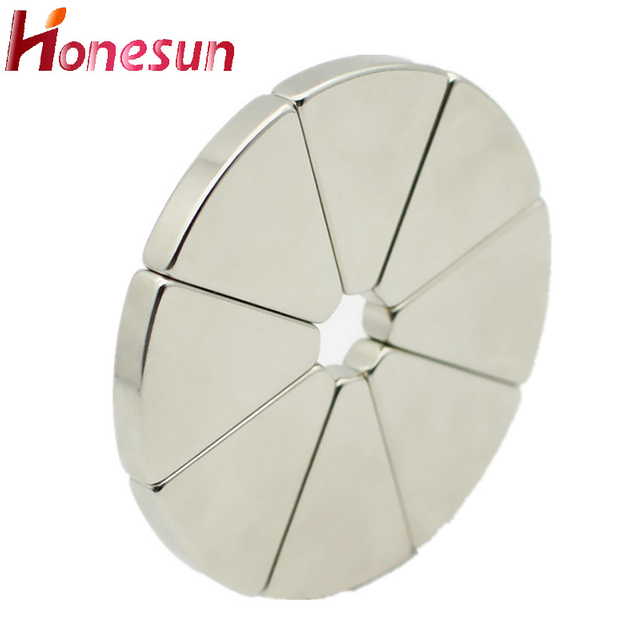
4.About cube neodymium magnets production capacity
Neodymium magnets are the strongest type of permanent magnet available. They are made from an alloy of neodymium, iron, and boron. The global production capacity of neodymium magnets is estimated to be around 10,000 tons per year. The majority of neodymium magnets are produced in China, with other countries such as Japan, the United States, and Germany also producing them.
5.About cube neodymium magnets payment method
Neodymium magnets are a type of rare earth magnet made from an alloy of neodymium, iron, and boron. They are the strongest type of permanent magnet commercially available and are used in a wide variety of applications. Neodymium magnets are typically purchased online and can be paid for using a variety of payment methods, including credit cards, PayPal, and wire transfers.
6.Are there any restrictions on the production or use of cube neodymium magnets?
Yes, there are restrictions on the production and use of neodymium magnets. Neodymium magnets are subject to the European Union's Restriction of Hazardous Substances (RoHS) directive, which restricts the use of certain hazardous materials in electrical and electronic equipment. Additionally, neodymium magnets are subject to the International Maritime Organization's (IMO) International Maritime Dangerous Goods (IMDG) Code, which regulates the transport of hazardous materials by sea. Finally, neodymium magnets are subject to the United Nations' International Atomic Energy Agency (IAEA) regulations, which regulate the use of radioactive materials.
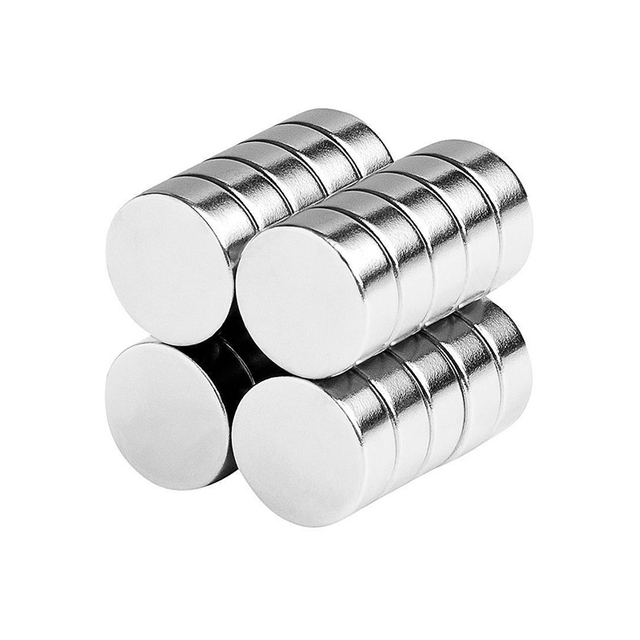
7.What are the potential future advances in Neodymium Magnet technology?
1. Improved magnetization processes: Developing new methods to increase the magnetization of neodymium magnets, such as using high-frequency alternating current or pulsed direct current, could lead to stronger magnets. 2. Improved coating processes: Developing new methods to coat neodymium magnets with protective layers could help to reduce corrosion and improve the longevity of the magnets. 3. Improved manufacturing processes: Developing new methods to manufacture neodymium magnets more efficiently and cost-effectively could help to reduce the cost of the magnets. 4. Improved recycling processes: Developing new methods to recycle neodymium magnets could help to reduce the environmental impact of the magnets. 5. Improved magnetic field control: Developing new methods to control the magnetic field of neodymium magnets could help to improve the performance of the magnets in various applications.
8.What are the safety precautions when handling cube neodymium magnets?
We are a professional cube neodymium magnets company dedicated to providing high quality products and services. 1. Keep magnets away from children and pets. 2. Wear protective gloves and eye protection when handling magnets. 3. Do not allow magnets to snap together or impact each other. 4. Do not allow magnets to come into contact with electronic devices, such as computers, cell phones, and credit cards. 5. Do not allow magnets to come into contact with pacemakers or other medical devices. 6. Do not allow magnets to come into contact with magnetic media, such as floppy disks, credit cards, and videotapes. 7. Do not allow magnets to come into contact with each other, as they can become permanently magnetized. 8. Do not allow magnets to come into contact with flammable materials, such as gasoline, paint, and solvents. 9. Do not allow magnets to come into contact with liquids, as they can corrode. 10. Store magnets in a dry, cool place away from direct sunlight.
9.Why are cube neodymium magnets considered to be the strongest permanent magnets?
As one of the top cube neodymium magnets manufacturers in China, we take this very seriously. Neodymium magnets are considered to be the strongest permanent magnets because they are made from an alloy of neodymium, iron, and boron. This alloy creates a strong magnetic field due to the way the atoms are arranged. The magnetic field created by neodymium magnets is much stronger than that of other permanent magnets, such as ferrite or alnico.
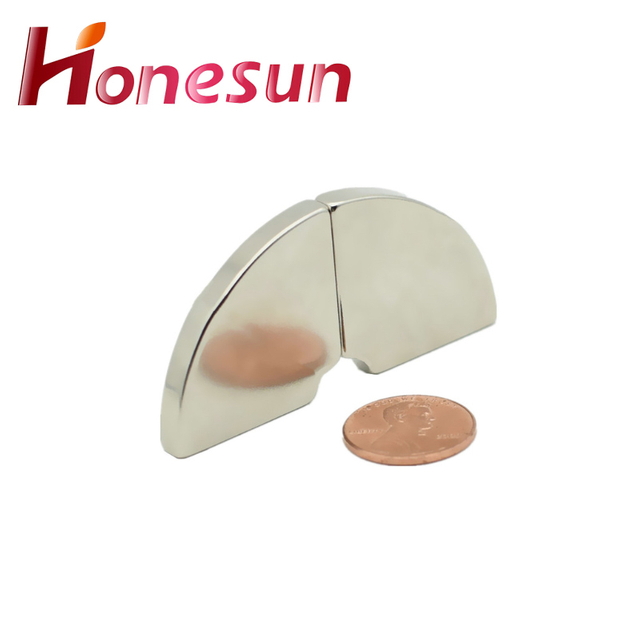
10.About cube neodymium magnets production skills training
Neodymium magnets are a type of rare earth magnet that is made from an alloy of neodymium, iron, and boron. They are the strongest type of permanent magnet available and are used in a variety of applications, from consumer electronics to industrial machinery. Neodymium magnets production skills training is designed to teach participants the basics of producing neodymium magnets. The training covers topics such as the properties of neodymium magnets, the manufacturing process, and safety considerations. Participants will also learn about the different types of neodymium magnets and their uses. The training is designed to give participants the knowledge and skills needed to produce neodymium magnets in a safe and efficient manner.
11.How do cube neodymium magnets affect electronic devices?
Being one of the top cube neodymium magnets manufacturers in China, We attach great importance to this detail. Neodymium magnets can affect electronic devices in a variety of ways. They can cause interference with the operation of the device, as the magnetic field can interfere with the operation of the device's internal components. They can also cause physical damage to the device, as the strong magnetic field can cause components to become magnetized and attract each other, potentially damaging the device. Finally, they can cause data loss, as the strong magnetic field can cause data stored on magnetic media to become corrupted or erased.
12.About the development history of cube neodymium magnets factory
Neodymium magnets were first developed in the early 1980s by General Motors and Sumitomo Special Metals. The magnets were made from an alloy of neodymium, iron, and boron. This alloy was found to be much stronger than traditional ferrite magnets, and could be used to create much smaller and more powerful magnets. Since then, neodymium magnets have become increasingly popular and are now used in a wide variety of applications, from consumer electronics to industrial machinery. The development of neodymium magnets has also led to the development of specialized factories that produce these magnets. These factories use a variety of processes to create the magnets, including sintering, hot pressing, and injection molding. The magnets are then tested for quality and strength before being shipped to customers.
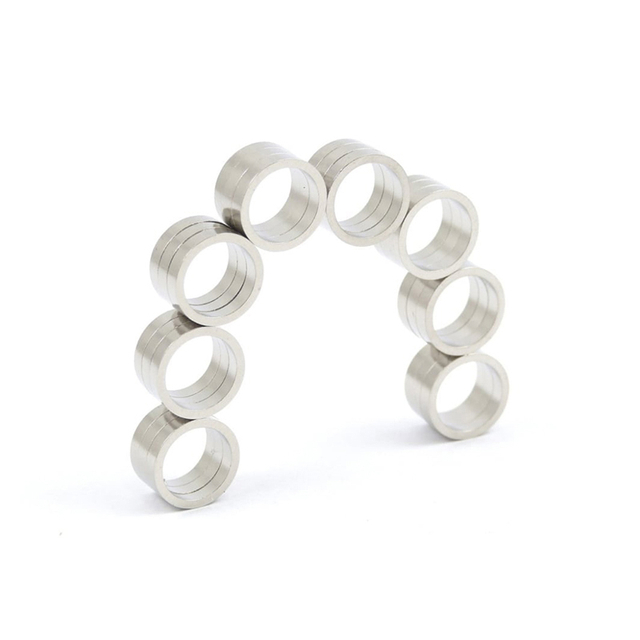
13.How do cube neodymium magnets contribute to renewable energy storage?
Neodymium magnets are used in a variety of renewable energy storage systems, such as flywheels, supercapacitors, and batteries. Flywheels use the magnets to store energy in the form of kinetic energy, while supercapacitors use them to store energy in the form of electrical charge. Batteries use the magnets to store energy in the form of chemical energy. Neodymium magnets are also used in electric motors and generators, which are essential components of renewable energy systems.
14.Can cube neodymium magnets be used in high-temperature environments?
Our cube neodymium magnets products undergo strict quality control to ensure customer satisfaction. No, neodymium magnets are not suitable for use in high-temperature environments. They can become permanently demagnetized if exposed to temperatures above their Curie temperature, which is typically around 80-200°C (176-392°F).
15.Are cube neodymium magnets expensive?
Our company has many years of cube neodymium magnets experience and expertise. Neodymium magnets are not particularly expensive, but they can be more expensive than other types of magnets. The cost of neodymium magnets depends on the size, shape, and grade of the magnet.
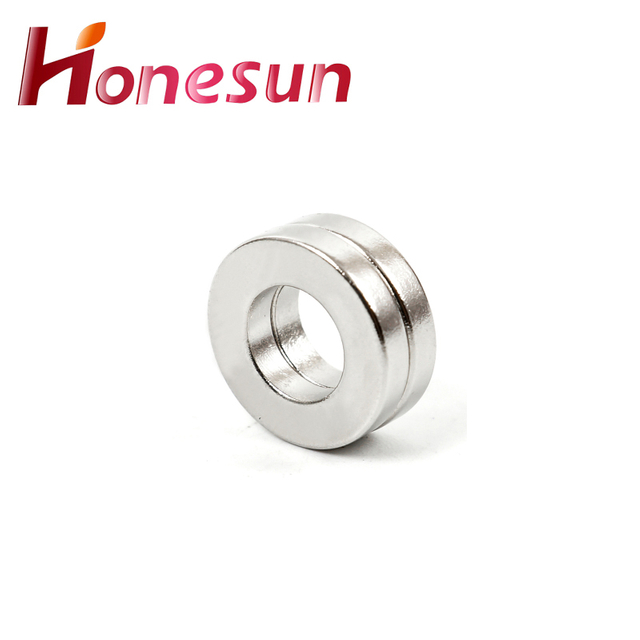
16.What is the magnetic field strength of a Neodymium Magnet?
The magnetic field strength of a Neodymium magnet can range from 10,000 to 14,000 gauss.
| Product Name | cube neodymium magnets |
| Material | Neodymium Magnet/Permanet Magnet |
| Size | Various kinds or according to customers' request |
| Shape | Disc, Block, Ring, Countersunk, Segment, Trapezoid, Irregular shapes are available, Or Customized Shapes |
| Grade | N35-N52, N35M-N50M, N33H-N48H, N30SH-N35SH and so on |
| Tolerance in size | +/-0.05 mm |
| Direction of magnetisation | Through the thickness or through the diameter |
| Applications | 1. Electronic areas: speakers, headphones, acoustics, sensors and so on. 2. Motor areas: generators, servo motors, micro-motors, vibration motors, elevator motor and so on. 3. Clean Tech Energy: Water flow enhancement, wind turbines. 4. Health care: MRI, medical treatment equipment. 5. Other industries: electric doors and windows, electric vehicle, electric bicycles, computer, phone, boxes, magnetic tools, notebook and so on |



1.Are cube neodymium magnets affected by extreme temperatures?
Yes, neodymium magnets can be affected by extreme temperatures. They can become brittle and crack if exposed to temperatures above 175°C (347°F). They can also lose their magnetism if exposed to temperatures below -45°C (-49°F).
2.About cube neodymium magnets delivery date
Neodymium magnets are usually shipped within 1-2 business days of ordering. Depending on the size and quantity of the magnets, delivery times may vary.
3.How do cube neodymium magnets compare to Samarium Cobalt Magnets?
cube neodymium magnets is not a product only, but also can help you comes to money-making. Neodymium magnets are the strongest type of permanent magnet available, and they are much stronger than samarium cobalt magnets. Neodymium magnets are also much more affordable than samarium cobalt magnets, making them the more popular choice for many applications. Neodymium magnets are also more resistant to corrosion and temperature changes than samarium cobalt magnets.

4.About cube neodymium magnets production capacity
Neodymium magnets are the strongest type of permanent magnet available. They are made from an alloy of neodymium, iron, and boron. The global production capacity of neodymium magnets is estimated to be around 10,000 tons per year. The majority of neodymium magnets are produced in China, with other countries such as Japan, the United States, and Germany also producing them.
5.About cube neodymium magnets payment method
Neodymium magnets are a type of rare earth magnet made from an alloy of neodymium, iron, and boron. They are the strongest type of permanent magnet commercially available and are used in a wide variety of applications. Neodymium magnets are typically purchased online and can be paid for using a variety of payment methods, including credit cards, PayPal, and wire transfers.
6.Are there any restrictions on the production or use of cube neodymium magnets?
Yes, there are restrictions on the production and use of neodymium magnets. Neodymium magnets are subject to the European Union's Restriction of Hazardous Substances (RoHS) directive, which restricts the use of certain hazardous materials in electrical and electronic equipment. Additionally, neodymium magnets are subject to the International Maritime Organization's (IMO) International Maritime Dangerous Goods (IMDG) Code, which regulates the transport of hazardous materials by sea. Finally, neodymium magnets are subject to the United Nations' International Atomic Energy Agency (IAEA) regulations, which regulate the use of radioactive materials.

7.What are the potential future advances in Neodymium Magnet technology?
1. Improved magnetization processes: Developing new methods to increase the magnetization of neodymium magnets, such as using high-frequency alternating current or pulsed direct current, could lead to stronger magnets. 2. Improved coating processes: Developing new methods to coat neodymium magnets with protective layers could help to reduce corrosion and improve the longevity of the magnets. 3. Improved manufacturing processes: Developing new methods to manufacture neodymium magnets more efficiently and cost-effectively could help to reduce the cost of the magnets. 4. Improved recycling processes: Developing new methods to recycle neodymium magnets could help to reduce the environmental impact of the magnets. 5. Improved magnetic field control: Developing new methods to control the magnetic field of neodymium magnets could help to improve the performance of the magnets in various applications.
8.What are the safety precautions when handling cube neodymium magnets?
We are a professional cube neodymium magnets company dedicated to providing high quality products and services. 1. Keep magnets away from children and pets. 2. Wear protective gloves and eye protection when handling magnets. 3. Do not allow magnets to snap together or impact each other. 4. Do not allow magnets to come into contact with electronic devices, such as computers, cell phones, and credit cards. 5. Do not allow magnets to come into contact with pacemakers or other medical devices. 6. Do not allow magnets to come into contact with magnetic media, such as floppy disks, credit cards, and videotapes. 7. Do not allow magnets to come into contact with each other, as they can become permanently magnetized. 8. Do not allow magnets to come into contact with flammable materials, such as gasoline, paint, and solvents. 9. Do not allow magnets to come into contact with liquids, as they can corrode. 10. Store magnets in a dry, cool place away from direct sunlight.
9.Why are cube neodymium magnets considered to be the strongest permanent magnets?
As one of the top cube neodymium magnets manufacturers in China, we take this very seriously. Neodymium magnets are considered to be the strongest permanent magnets because they are made from an alloy of neodymium, iron, and boron. This alloy creates a strong magnetic field due to the way the atoms are arranged. The magnetic field created by neodymium magnets is much stronger than that of other permanent magnets, such as ferrite or alnico.

10.About cube neodymium magnets production skills training
Neodymium magnets are a type of rare earth magnet that is made from an alloy of neodymium, iron, and boron. They are the strongest type of permanent magnet available and are used in a variety of applications, from consumer electronics to industrial machinery. Neodymium magnets production skills training is designed to teach participants the basics of producing neodymium magnets. The training covers topics such as the properties of neodymium magnets, the manufacturing process, and safety considerations. Participants will also learn about the different types of neodymium magnets and their uses. The training is designed to give participants the knowledge and skills needed to produce neodymium magnets in a safe and efficient manner.
11.How do cube neodymium magnets affect electronic devices?
Being one of the top cube neodymium magnets manufacturers in China, We attach great importance to this detail. Neodymium magnets can affect electronic devices in a variety of ways. They can cause interference with the operation of the device, as the magnetic field can interfere with the operation of the device's internal components. They can also cause physical damage to the device, as the strong magnetic field can cause components to become magnetized and attract each other, potentially damaging the device. Finally, they can cause data loss, as the strong magnetic field can cause data stored on magnetic media to become corrupted or erased.
12.About the development history of cube neodymium magnets factory
Neodymium magnets were first developed in the early 1980s by General Motors and Sumitomo Special Metals. The magnets were made from an alloy of neodymium, iron, and boron. This alloy was found to be much stronger than traditional ferrite magnets, and could be used to create much smaller and more powerful magnets. Since then, neodymium magnets have become increasingly popular and are now used in a wide variety of applications, from consumer electronics to industrial machinery. The development of neodymium magnets has also led to the development of specialized factories that produce these magnets. These factories use a variety of processes to create the magnets, including sintering, hot pressing, and injection molding. The magnets are then tested for quality and strength before being shipped to customers.

13.How do cube neodymium magnets contribute to renewable energy storage?
Neodymium magnets are used in a variety of renewable energy storage systems, such as flywheels, supercapacitors, and batteries. Flywheels use the magnets to store energy in the form of kinetic energy, while supercapacitors use them to store energy in the form of electrical charge. Batteries use the magnets to store energy in the form of chemical energy. Neodymium magnets are also used in electric motors and generators, which are essential components of renewable energy systems.
14.Can cube neodymium magnets be used in high-temperature environments?
Our cube neodymium magnets products undergo strict quality control to ensure customer satisfaction. No, neodymium magnets are not suitable for use in high-temperature environments. They can become permanently demagnetized if exposed to temperatures above their Curie temperature, which is typically around 80-200°C (176-392°F).
15.Are cube neodymium magnets expensive?
Our company has many years of cube neodymium magnets experience and expertise. Neodymium magnets are not particularly expensive, but they can be more expensive than other types of magnets. The cost of neodymium magnets depends on the size, shape, and grade of the magnet.

16.What is the magnetic field strength of a Neodymium Magnet?
The magnetic field strength of a Neodymium magnet can range from 10,000 to 14,000 gauss.
Honesun Industrial Co., Ltd. focuses on designing, researching, developing, manufacturing and selling Magnets and Magnetic Assemblies. With more than 15 years' rich experience and considerate services.we have been recognized as a reliable.



